



The
 photo credit: George C. Marshall Research Library
photo credit: George C. Marshall Research Library






The
 photo credit: George C. Marshall Research Library
photo credit: George C. Marshall Research Library

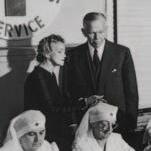
General Marshall served as president of the American Red Cross from October 1949 to September 1950, prior to his appointment as secretary of defense. Bowers draws upon his 2019 publication, A Tonic to My Spirit: George Marshall and the American Red Cross, and discusses Marshall’s presidency of the Red Cross, his accomplishments, and the great personal satisfaction he experienced during his tenure.
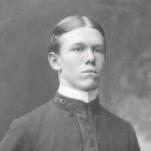
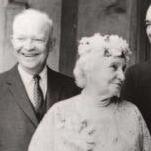
14
In this article, Roll focuses on Marshall’s character, a theme that runs throughout his recent bestselling book, George Marshall: Defender of the Republic In this essay, Mr. Roll discusses how Marshall’s character was formed; how it developed; how it facilitated his accomplishments; and why it matters today.
On May 24, 1964, one of the hottest days in Lexington history, the Board of Trustees and eight thousand visitors, including Presidents Eisenhower and Johnson, met to dedicate the George C. Marshall Research Library. Although President Johnson provided the keynote address, the more memorable remarks came from the 34th president, Dwight D. Eisenhower, who stressed the character of Marshall and the virtues of selfless leadership he demonstrated throughout his career.
Marshall is the membership magazine of the George C. Marshall Foundation. We encourage reproduction and use of articles contained herein, with permission. Direct correspondence and requests to the George C. Marshall Foundation, P.O. Box 1600, Lexington, VA 24450.
Telephone: 540-463-7103
Website: www.marshallfoundation.org
Membership information is available on our website. Your membership supports programs and activities during your membership year and helps us perpetuate the legacy of the man President Harry Truman called “the great one of the age.” As the keeper of the flame, the Marshall Foundation preserves and communicates the remarkable story of the life and times of George C. Marshall and his contemporaries. It has become a unique, national treasure worth protecting at all costs. That’s why your membership is so important.
We gratefully acknowledge financial support from Clifford Miller Yonce and the Miller Foundation for underwriting the costs associated with production of this issue.
Contributors: Tom Bowers, David Roll, David Hein, Paul Levengood, Cathy DeSilvey, Melissa Davis, and John Wranek.
Departments
3 Welcome
28 Marshall Shorts
• Andrew J. Goodpaster Award Update
• Best New Books
30 Marshall Legacy Series
32 The Last Word

Front cover image: George Marshall traveled 7,500 miles to 15 cities in six days, less than a month after starting with the Red Cross, when he visited local Red Cross chapters to meet with leaders and greet volunteers and staff, like these in Atlanta, Georgia.
photo
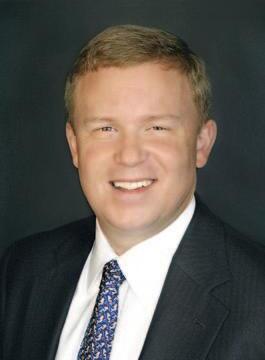
It is cliché to say that we live in unprecedented times. It is true that we have all grown accustomed to things we never imagined: social distancing, seeing loved ones only on a computer screen, widespread protests. Much ink has been spilled about how the first half of 2020 has shown us to be a nation divided.
Anyone who knows me, would say that I am no Pollyanna. But I am hopeful that we may take away something positive from these turbulent times. Communities have pulled together to bring food to the elderly, small businesses have pivoted to respond to new customer demands, and Americans of all backgrounds have joined to address injustice. If there is a lesson to take away from all this, it may be that we all must adapt to a changing world, and we all must serve a greater good.
Adapt and serve. At the George C. Marshall Foundation, we have tried to make those two words our guiding principles in recent months. When the COVID-19 pandemic caused us to shut our doors and reimagine how we deliver our mission, we adapted in order to serve our members and others. We re-created our Legacy Lectures in an online format, we posted materials on our website to help students and teachers with remote learning, and we ramped up our efforts to support researchers from around the world doing important work on George Marshall, his life, and his times.
In a way, our effort to adapt and serve mirrors much about General Marshall himself. Throughout his long military and diplomatic career, he refused to accept things the way they were but advocated for how they should be. And he always stepped forward to serve his country and the world in whatever way was most appropriate. Both impulses came from his deeply held convictions and his moral core. This issue of Marshall includes three articles that attest to his ability to adapt and his passion to serve. Tom Bowers details Marshall’s experiences leading one of the nation’s most important non-profits, the American Red Cross. The then-retired general worked tirelessly to spread the charity’s message. David Roll examines where Marshall’s ability to adapt and serve came from: his character. And finally, David Hein introduces the memorable speech delivered by Dwight Eisenhower at the dedication of the Marshall Library in 1964. The former president gives insight into how Marshall’s personal qualities came across to a subordinate.
I believe you will enjoy this issue of Marshall. And I hope that you and your family stay safe and healthy.
Best,
 Paul A. Levengood, President
Paul A. Levengood, President
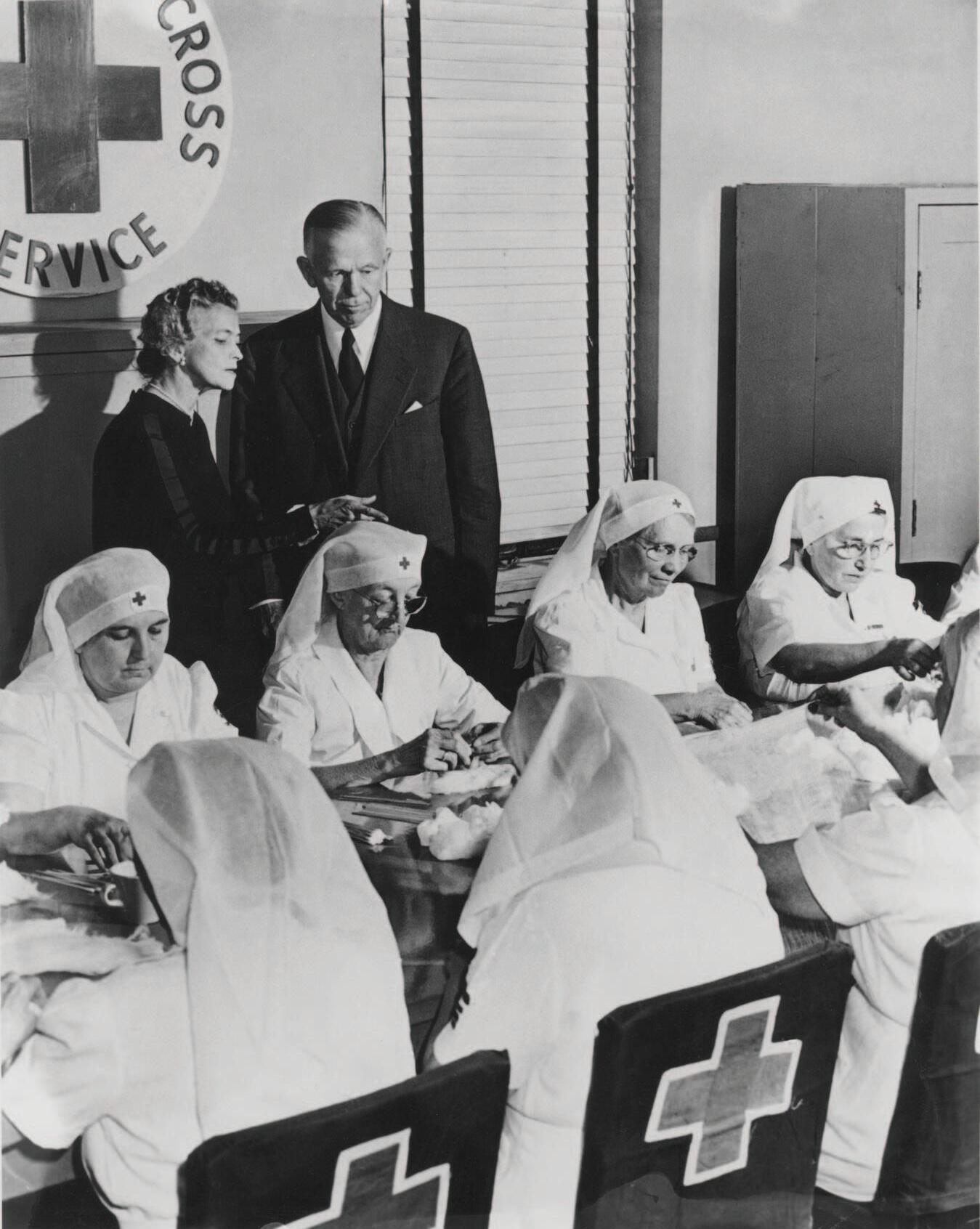
“Much about the Red Cross appeals to the heart and soul. It is very satisfying to be engaged in an effort to help people.”

George Marshall’s presidency of the American Red Cross has not received much attention from his biographers, and that gave me an opportunity to pursue my passion for historical research—and to delve into an unexplored field about George Marshall.

I looked at Volume 7 of Marshall’s published papers; resources at the Red Cross headquarters; the National Archives in College Park, Maryland; contemporary newspaper accounts; and the Marshall Library in Lexington, Virginia. That research led to three conclusions about George Marshall and the Red Cross:
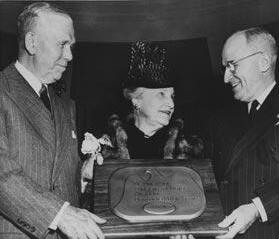
• At the end of Marshall’s term as Army Chief of Staff, President Harry Truman’s original plan was for him to become president of the Red Cross—not envoy to China, not secretary of state, and not secretary of defense.
• Despite Truman’s assurance that the job would not be too taxing, Marshall worked tirelessly to further the Red Cross mission.
• Marshall’s Red Cross experience was probably more rewarding to him than anything else that he did.
Marshall was honored at a ceremony at the Pentagon on November 26, 1945. It was not technically a retirement ceremony because five-star officers were considered to be on active duty as long as they lived.
A few weeks before that, Truman had spoken to Marshall about the Red Cross presidency, but Marshall told the president that he would not take on a new duty without discussing it with his wife Katherine. Marshall also affirmed that he needed a break before assuming other responsibilities. The Red Cross presidency seemed to be on the horizon, but at a later time in the future.
That plan was interrupted, however, by an event the day after the Pentagon ceremony. The Marshalls had driven to Dodona Manor in Leesburg to settle into their home there. At lunch, Katherine talked about the lifestyle changes that Marshall’s retirement would mean, and she planned a special dinner that night to celebrate.
This article is a summary of the author’s lecture delivered in January 2020. You can watch Dr. Bowers’s talk, as well as other Legacy Series lectures, on our YouTube channel.
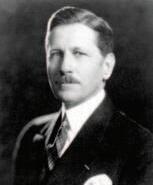
At about the same time that the Marshalls were having lunch and discussing their future, President Truman and his cabinet were at a luncheon meeting in Washington, and they, too, were discussing Marshall’s future.
Truman stormed into the meeting as mad as a hornet, ranting about Patrick Hurley, the U.S. ambassador to China, who had resigned that morning, making explosive charges that the State Department had hindered his efforts to settle the civil war between the Nationalist Chinese and the Communists. To mitigate the negative fallout from Hurley’s charges, the cabinet concluded that Truman should show his commitment to China by replacing him with a well-regarded national figure with an impeccable reputation. Clinton Anderson, secretary of agriculture, suggested George Marshall, and James Forrestal, secretary of the navy, seconded the idea.
Truman initially opposed the suggestion because of Marshall’s expressed desire for a break before assuming another public service position. The president, however, was persuaded by two arguments from the cabinet. One, he could name Marshall as a special envoy and not as an ambassador, eliminating the need for Senate hearings and confirmation, which would allow Marshall to leave for China immediately. Two, cabinet members argued that Marshall would have to spend only a short time in China, make a token effort, and come home for his rest.
Truman returned to his office and telephoned Marshall to ask him to go to China. Without asking for time to consult Katherine, and ignoring his previously expressed desire for a break from public service, Marshall said yes. He had hoped to keep the news from Katherine until the next day, but she heard it on a radio newscast as she and Marshall were having their celebration dinner.
Marshall departed for China before Christmas. He was unsuccessful in his attempts to reconcile the warring sides, and he returned in January 1947 and began a two-year term as secretary of state on January 21, 1947. Two years later, after he had a kidney removed and had resigned as secretary of state in January 1949, the Marshalls went to their winter home in Pinehurst, North Carolina, where he told reporters that he had no plans for the immediate future.
Truman had plans for Marshall, however, because the president paid a surprise visit to Pinehurst on January 13. When the president walked into his bedroom, Marshall exclaimed, “My goodness! Where did you come from?” The two men talked for forty-five minutes, and they almost certainly discussed the Red Cross presidency. Two days later, the Marshalls flew on the president’s airplane to Puerto Rico for recovery in the sun.
“…the Red Cross presented by far the most satisfying opportunity…”
Shortly after Marshall returned on February 7, 1949, Truman again asked him to assume the Red Cross presidency. Marshall told Truman that “the Red Cross presented by far the most satisfying opportunity,” especially in contrast to the duties and responsibilities of war. Truman was not urgent about changing the Red Cross leadership, however, and the Marshalls traveled extensively over the spring and summer. On September 22, Truman announced Marshall’s appointment to a three-year term as president of the Red Cross, effective October 1.
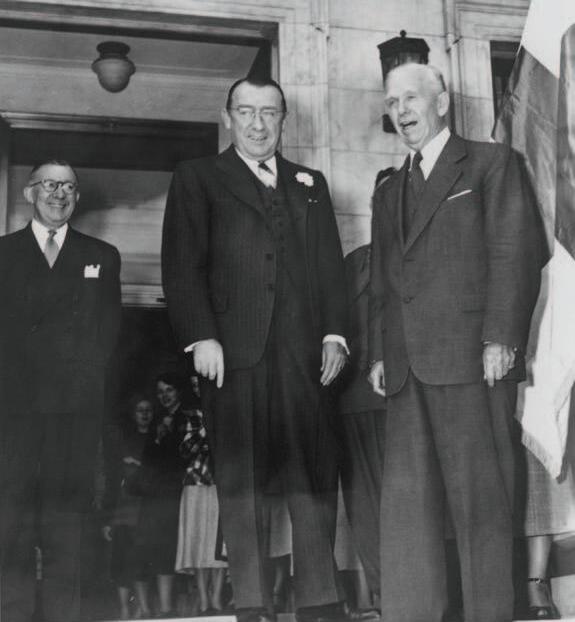
The appointment of the 68-year-old Marshall generated favorable comments in the nation’s newspapers. The New York Times said that Marshall gave the Red Cross “a leader of dignity and highest character skilled in the organization and direction of great enterprises.…He brings new prestige to a fine organization and continues his tradition of service to his country.” The New York Herald Tribune echoed the sentiments: “Heart-warming is an overworked adjective, but it is the best we know to express the spontaneous popular feeling that welcomes him to his new post.”
The added income may have been a factor. Marshall received $18,720 annually as a five-star general and $22,500 as Red Cross president. That $41,220 would be equivalent to approximately $450,000 today. (As a five-star general considered to be on active duty, Marshall received full pay and benefits for life.)

Red Cross workers assembled at the marble staircase of the Red Cross building in Washington, D.C., on October 3 to await the arrival of their new president. According to the Red Cross Courier, the organization’s magazine, “The general’s face broke into a broad smile as he acknowledged the greetings by nodding right and left. With characteristic modesty, he was touched by the salute.”
Truman had promised Marshall that the job would not be too taxing, a fact that Marshall had acknowledged in a note of thanks to the president: “I appreciate your desire to provide me with a dignified post that would not be too demanding for my health and peace of mind.” Marshall and Truman may have believed that the Red Cross responsibilities would not be too taxing, but the reality of Marshall’s duties was far different because Marshall’s nature would not allow him to be a mere figurehead in the office.
“I appreciate your desire to provide me with a dignified post that would not be too demanding for my health and peace of mind.”
Within three weeks, the new Red Cross president began a grueling travel and meeting schedule to inspect Red Cross facilities and to meet leaders and volunteers at local chapters. He told reporters, “This trip is an effort to hear and to see, not to talk. I’m not going to discuss war. I’ve been talking war for ten years and I’m fed up. I’m talking Red Cross.”
He visited fourteen cities in six days: Pittsburgh, Cleveland, Chicago, Minneapolis, Bismarck, Portland, San Francisco, Los Angeles, Phoenix, Kansas City, St. Louis, Memphis, New Orleans, Atlanta, and home to Washington, D.C. His detailed schedule would have him eat breakfast in one city, fly to a second city for lunch, to a third for dinner, and to a fourth to be ready to repeat
Marshall with various Red Cross volunteers including: top left: Nashville Chapter volunteers Mrs. Allen Berry and Mrs. W. G. Robyn.
Top right: VA Hospital in Houston, Texas with Edith Faivre, ARC Field Director and Mrs. C.C. Darnell.
Bottom right: with Toledo, Ohio volunteers.
Bottom left: with Junior Red Cross volunteers in Oklahoma City, Oklahoma.
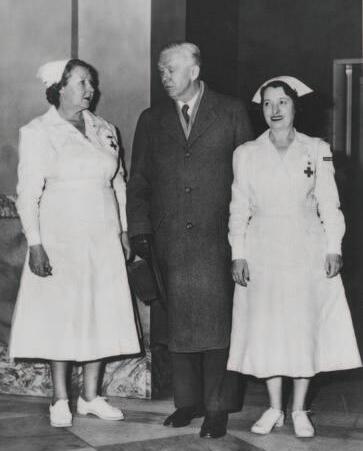
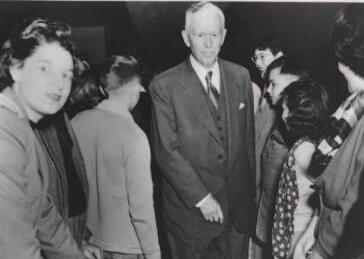
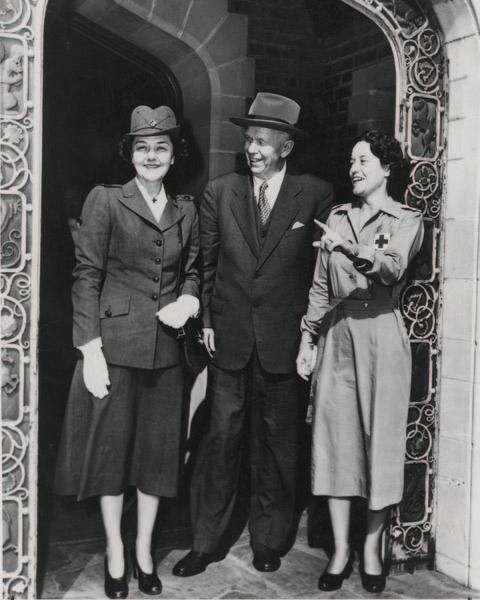
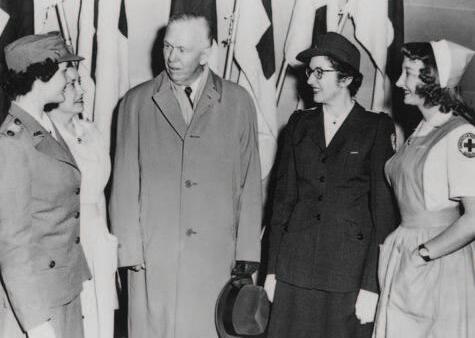
the schedule the following day. Marshall later said that he was late only once on the trip—by twelve minutes in New Orleans. “I could take that delay,” he jokingly explained, “[because] it was at Antoine’s [restaurant].”
Journalists were impressed by Marshall’s vigor because they thought he might have been weakened by his kidney operation. The San Francisco Chronicle said, “He whisked in and out of San Francisco yesterday with a gleam in his eye and a bounce in his step.… He whooshed away to complete an itinerary that ought to have had him hanging on the ropes — but which obviously hasn’t laid a glove on him.” A Memphis newspaper said Marshall was “militarily erect in a soft blue suit, darker blue tie and brown tweed topcoat. The eyes that had watched over the nation’s victory in war and its foreign policy in peace were bright and full of humor.”
“…General Marshall doesn’t try to look different from other men. The difference is in what he does.”
When he saw people lining a parade route in Youngstown, Ohio, he exclaimed, “Why this is terrible!
All these people came here to see me, and here I am riding in a car! Let’s get out and walk!” The Youngstown newspaper said that Marshall’s troops in the war “always found him plain, unassuming and considerate.… The people of Youngstown expected their famous guest to be riding in pomp and splendor. They didn’t look for him to be
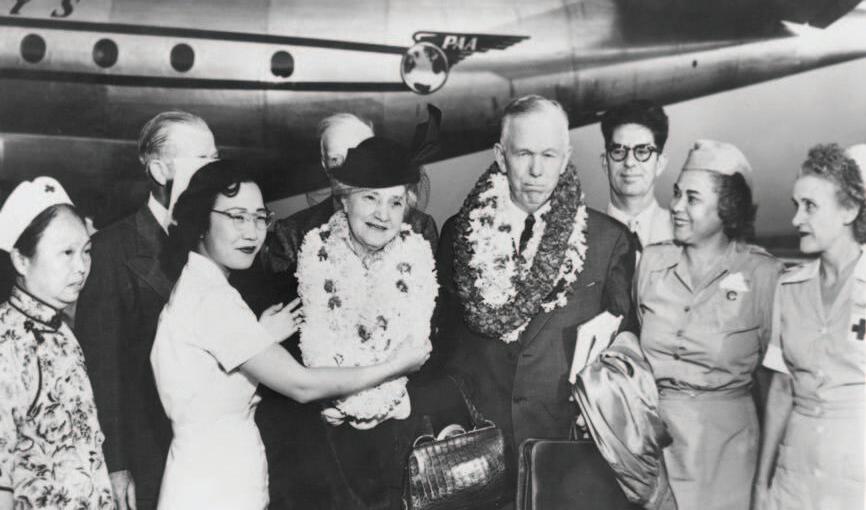
walking, like an ordinary man. General Marshall doesn’t try to look different from other men. The difference is in what he does.”
Marshall visited twelve cities in January 1950, visiting Boston, Providence, Jacksonville, Tampa, Montgomery, Birmingham, Houston, Dallas, Oklahoma City, Wichita, Nashville, and Louisville. A third trip in February included twelve more cities: Buffalo, Detroit, Toledo, Indianapolis, Cincinnati, Philadelphia, New York City, Newark, New Orleans, Los Angeles, Honolulu, and San Francisco. Marshall said at a news conference that he had no other plans for his future and that the Red Cross would be his last public effort.
A New York Times story about Marshall’s extensive travels for the Red Cross prompted Truman to write to Marshall: “As usual, you are doing a thorough job!” He advised Marshall to be careful of his health and physical well-being, and continued, “I want you to be alive and fit when I quit here so we can do some things that need to be done in this great republic of ours. Please take care of yourself. Don’t make me responsible for your demise. I have enough to answer for without that!”
“Some Red Cross Problems”
Why did Marshall engage in such exhaustive travel, especially in light of Truman’s promise that the job would not be too taxing? A few reasons were suggested in an undated and confidential eleven-page memorandum found in the Marshall Library archives: “Some Problems of Red Cross— Memorandum for General Marshall—for his eyes only.” It bore no indication of authorship.
One problem was low morale among Red Cross employees and volunteers at the local level. The national organization’s Board of Incorporators had consisted of sixty-five wealthy supporters who were mostly from the East Coast. When one died or left the board, the remaining members chose a successor. An eighteen-member Central Committee, which ran the organization, included six government officials appointed by the president of the United States, six chosen by the Incorporators, and six chosen by local chapters.
Government officials chosen by the president considered their appointment to be honorary and seldom attended meetings, and chapter delegates from distant cities could not come to Washington regularly. The incorporator members were from the East Coast, and they attended most meetings and dominated the Central Committee, and local Red Cross officials felt that their opinions were not always heard. A reorganization in 1947 had alleviated some of those
problems, but negative feelings persisted. Marshall’s visits to Red Cross chapters arose from his military experience, which had taught him that you improve morale by showing soldiers that you care about them. “I know from my Army experience,” he explained, “that you’ve got to go to the people themselves to find out what the problems are.”
According to the memo, the Red Cross was experiencing growing pains exacerbated by the expansion and contraction of its activities during and after World War II. The number of paid employees went from 3,550 in 1939 to 25,500 in 1945 and 21,050 in 1947. Expenditures increased from $13 million in 1939 to $130 million in 1945 and $120 million in 1947.
Finances were a constant challenge for the Red Cross and for Marshall. The organization had received government funds during World War II, but that funding was reduced after the war. The memo said that the Red Cross had substantially overspent its income after the war because its expenses did not drop as much as income did. Soon after taking office, Marshall launched a national campaign that sought $67 million, which would be approximately $700 million today. Even that amount would not match expenses, and the difference had to be made up from accumulated reserves.
To raise money, Marshall spoke to many groups and went on national radio to plead for funds, beginning with an appearance by Truman. When he introduced the president, Marshall praised the Red Cross and Truman: “Its nearly 4,000 chapters touch every region of America. Its thousands of volunteers represent the finest quality of Americanism.… The workers of the Red Cross belong to no one group, race or creed. Its ranks include the man in the street and the first citizen of our country.”
“Its nearly 4,000 chapters touch every region of America. Its thousands of volunteers represent the finest quality of Americanism.… The workers of the Red Cross belong to no one group, race or creed.…”
Marshall also worked hard to counter negative attitudes toward the Red Cross among the public, including complaints from military veterans about Red Cross services during World War II. The criticisms arose, Marshall explained, because the average soldier did not understand the functions of the Red Cross and how military restrictions and the demands of war impacted its efforts. That carried over after the war and also existed among soldiers’ families.
He explained that the Red Cross had to charge for meals and other services at its facilities during the war because of a directive from Secretary of War Henry Stimson. Soldiers from other allied countries had to pay fees at their country’s facilities, and Stimson said that would create a morale problem if U.S. soldiers did not have to pay. However, Marshall strongly discounted the claims that the Red Cross had charged for blood.
Other soldiers complained that the Red Cross had not given them loans for personal emergencies. Marshall said the Red Cross had disbursed $74 million in interest-free loans and grants during World War II, but sometimes there were not enough funds to meet all the demands. Some soldiers also attacked the Red Cross for not granting them emergency leaves. The Red Cross could verify an emergency at home, Marshall explained, but only a soldier’s commander could approve a leave. Some soldiers complained that messages between them and their families
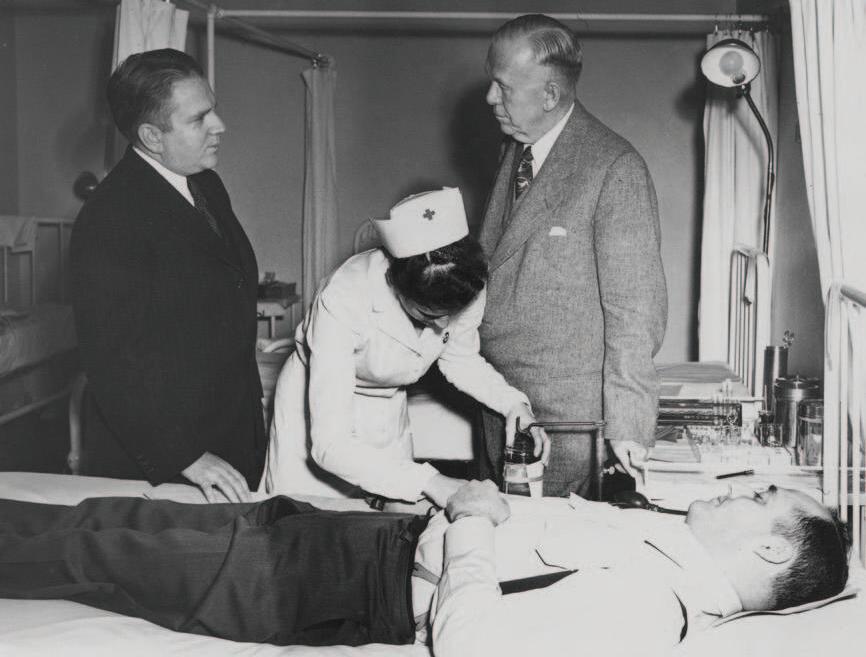
never got through. Marshall said that the Red Cross had handled 42 million communications during the war, mostly for emergencies. Those messages were sometimes halted for security reasons, he explained, but not because of the Red Cross.
In response to another criticism, Marshall explained that paid Red Cross employees received about the same salary as junior officers in the armed forces. Another complaint was that female Red Cross staffers paid more attention to officers than to enlisted men. Marshall explained that the Red Cross had only one female staffer in the field for every 15,000 servicemen, and that led to the perception that there was a shortage. Jokingly, Marshall said the only solution to that problem would have been to have had a ratio of one Red Cross female to every soldier, “and that would have been a bit impractical.”
“Know the Red Cross”
Marshall said the problems of the Red Cross arose in part because volunteers did not understand its role. The answer, he said, was to educate Red Cross workers about the Red Cross— what it meant and how it operated. Simply stated, he said, “The solution is Know your Red Cross.” That admonition brings to mind Marshall’s efforts during World War II to inform soldiers about reasons for the war and the series of films entitled “Why We Fight.”
He was an untiring champion of the Red Cross blood collection program and promoted it whenever he could. A national military emergency would call for quantities of blood almost beyond belief, Marshall warned. He said that the importance of the Red Cross to the morale and well-being of soldiers and veterans was a compelling reason for his taking the Red Cross presidency. The Red Cross, he said, was an “understanding counselor and ever-present friend, working with the military, but not an organic part of it.”
The Red Cross, he said, was an “understanding counselor and ever-present friend, working with the military, but not an organic part of it.”

The Red Cross was important domestically, Marshall said, and its medical services were the organization’s most valuable contribution to the welfare of the nation. In towns of fewer than 10,000 people, he added, the Red Cross was the only active social agency. Marshall said that the Red Cross’s disaster relief was better appreciated and understood than any of its other services. “In the finest sense,” he said, “this service exemplifies the time-honored American tradition of neighbor helping neighbor.”
Marshall emphasized the importance of volunteers to Red Cross efforts, and he especially lamented the lack of attention paid to women volunteers and the Junior Red Cross. He said that volunteers had to be given real work and responsibility and be made to feel that their efforts were important.
George Marshall had said that he had no personal plans beyond the Red Cross, but events in Korea in 1950 changed that. After North Korea invaded South Korea on June 25, President Truman would call on Marshall for yet another assignment.
Four important visitors visited Marshall in Leesburg on Saturday, July 1: Dean Acheson, secretary of state; Averell Harriman, special assistant to President Truman; Charles Bohlen, special adviser to Acheson; and George Kennan, another special adviser in the State Department. In Marshall’s words, the four men “showed up down at Leesburg and stayed for lunch, and you can imagine the character of the discussion.” Thinking about those four men at Dodona Manor tempts one to paraphrase what President John Kennedy said about Nobel Prize winners at a dinner in the White House: “It was the most extraordinary talent that had ever been gathered at Dodona Manor, with the possible exception of when George Marshall dined alone.”
“It was the most extraordinary talent that had ever been gathered at Dodona Manor, with the possible exception of when George Marshall dined alone.”
The four concluded that President Truman should hear Marshall’s ideas, too, and the president telephoned Marshall the next day and invited him to come to Washington on July 5. Truman couldn’t wait, however, and he got Marshall out of bed on July 4 with another phone call, giving Marshall an hour’s notice that he was coming to Leesburg that morning. Truman and his daughter Margaret arrived at Dodona Manor around 9:30 and left around noon. In addition to hearing Marshall’s views about Korea, Truman wanted to confirm that Marshall was willing and physically able to serve as secretary of defense.
Marshall later told a friend of his predicament that day: “Most confidentially, I have been trembling on the edge of being called again into public service in this crisis, but I hope to get by unmolested. But when the president sits under our oak trees and tells me of his difficulties, he has me at a disadvantage.” Two months later, Truman asked Marshall to replace Louis Johnson as secretary of defense, and the Senate confirmed Marshall’s appointment on September 21. Truman sent Katherine the pen that he used to sign the appointment and included this note: “I wish for your sake and the General’s that this meant less instead of more work for him.”
After two months of serving concurrently as secretary of defense and president of the Red Cross, Marshall resigned from the Red Cross presidency because he could not do both and because the Red Cross needed an active leader. In a farewell speech to Red Cross volunteers in Cleveland, Marshall said, “The Red Cross’s devotion to peace has not lessened. Its labors to help bring about a better understanding between peoples and nations will not cease. The Red Cross must be a practical, hard-headed organization, vigorous and well prepared.”
He said a poignant farewell to the Red Cross staff on December 4. “My association with the Red Cross has been a tonic to my spirit,” he said. “I have learned that there are great reserves of simple goodness and altruism in human beings that, when catalyzed by an agent like the Red Cross, create good will, friendliness and helpfulness. Knowing that these qualities exist, even when dormant, is about the only proof we have that someday man will learn to live in peace. I know you will not fail because it is not in the Red Cross tradition to fail.”
In September 1951, after Marshall had resigned as secretary of defense, he finally said “no” to President Truman when he invoked Katherine’s influence in turning down the president’s request to resume the presidency of the Red Cross. “I am having a fine time doing little or nothing for the present,” he said, “and Mrs. Marshall appears greatly relaxed.”
The American Red Cross has commemorated Marshall’s presidency with a bust at the Red Cross headquarters. The only other Red Cross leader to be so honored is Clara Barton.
George Marshall found great personal satisfaction as president of the American Red Cross, as evidenced by statements that he made about the Red Cross:
“It is a great relief to be wholly engaged in a beneficent mission rather than in one that demands great human sacrifices and sufferings.”
“Red Cross volunteers represent the finest quality of Americanism.”
“The Red Cross has great spiritual significance.”
“Much about the Red Cross appeals to the heart and soul. It is very satisfying to be engaged in an effort to help people.”
“My association with the Red Cross has been a tonic to my spirit.”
As far as I know, George Marshall never expressed such sentiments about being chief of staff of the Army, special envoy to China, secretary of state, or secretary of defense.
Tom Bowers lives in Ashburn, Virginia, and is docent director at George Marshall's Dodona Manor in Leesburg, the home that General Marshall and his wife owned from 1941 to 1959. A native of Indiana, Bowers earned B.A., M.A., and Ph.D. degrees from Indiana Univer-
sity. From 1965 to 1968, he was a U.S. Army Signal Corps officer at Supreme Headquarters, Allied Powers Europe (SHAPE). He was professor and dean of the School of Journalism and Mass Communication at the University of North Carolina at Chapel Hill.
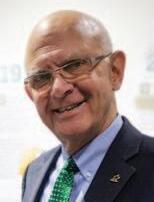
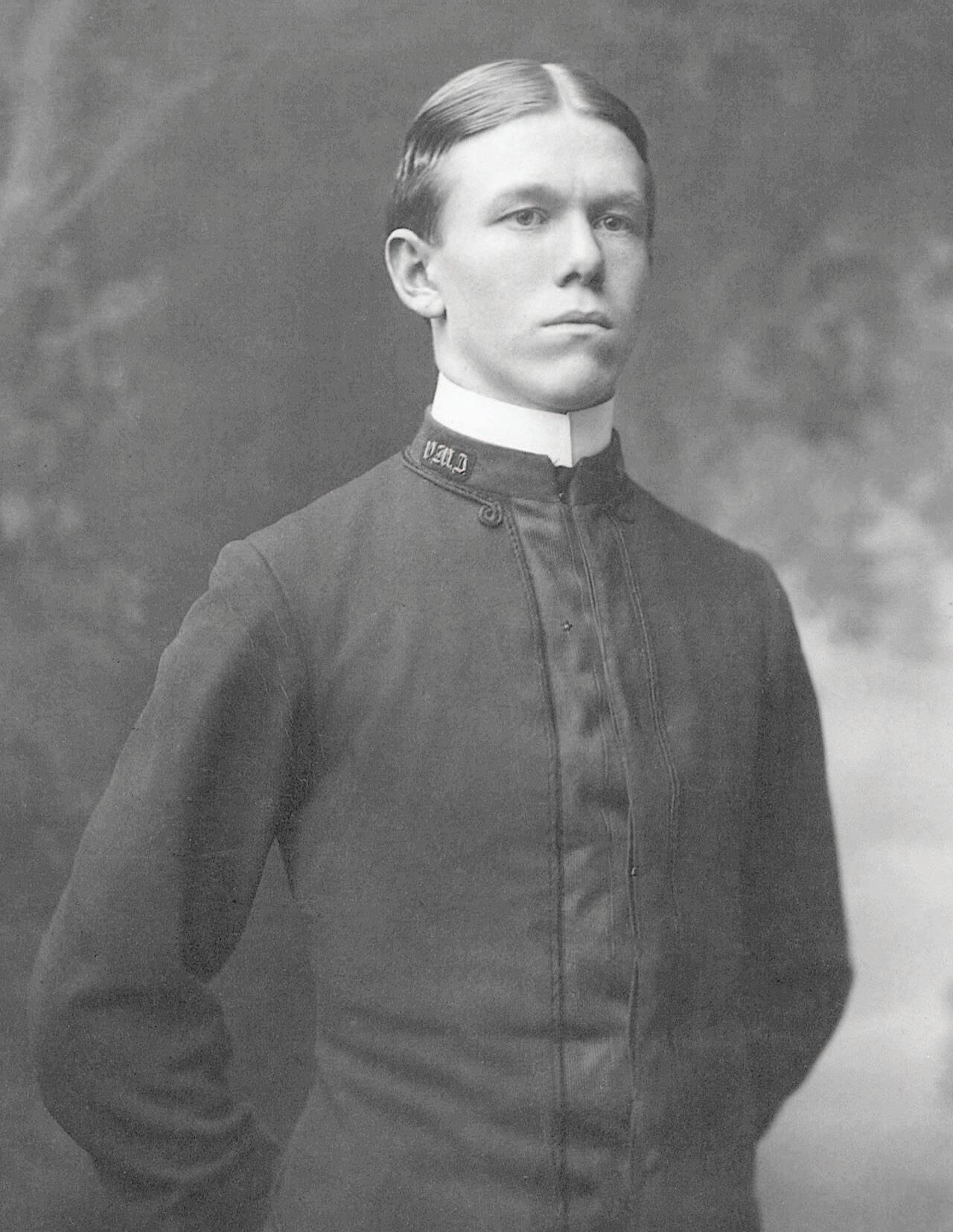
By the time Marshall ended his public career in 1951 the pillars of his character—self-mastery, selflessness, candor, the capacity to love and be loved, and magnanimity—were deeply etched.
George Catlett Marshall. Today he is remembered, if at all, as the man with a plan—the Marshall Plan of course. He is not to be confused with George Preston Marshall, the former owner of the Washington Redskins. During his bitterly contested divorce, Preston Marshall’s wife complained to the judge, “I married a man without a plan.”
George C. Marshall occupies a singular place in history. As soldier, he profoundly influenced the course of two world wars that swept away the European and Japanese systems of power and led to a new world order. As statesman, he conceived and spearheaded the Marshall Plan, the most significant and successful initiative in United States diplomacy since the Louisiana Purchase. He husbanded the “containment” of Soviet aggression at the beginning of the Cold War while laying the groundwork for NATO. As special envoy to China in 1946 and Secretary of Defense after the outbreak of the Korean War, five-star General Marshall faced up to the limits of American power in Asia and oversaw with surprising reluctance the relief of General Douglas MacArthur. He devoted a year to leading the American Red Cross. In 1953 Marshall accepted the Nobel Peace Prize. No American comes close to his ubiquitous yet selfless presence throughout the history of the twentieth century.
No American comes close to his ubiquitous yet selfless presence throughout the history of the twentieth century.
Rather than recount the stages of Marshall’s incredible fifty-year career as soldier and statesman under ten presidents, my aim in this brief essay is to focus on Marshall’s character, a theme that runs throughout my recent book, George Marshall: Defender of the Republic, and binds its pages together. George Marshall’s character—how it was formed; how it developed; how it facilitated his accomplishments; and why it matters.
The word “character” is derived from ancient Greek, the verb charassein—meaning engraved, cut in furrows, etched. Long before Marshall’s character was deeply etched, it began to take shape at the Virginia Military Institute. As an awkward sixteen-year-old from the North with a Yankee twang Marshall was a prime target for hazing by upperclassmen shortly after he entered VMI as a first year rat. One night they jammed the butt of a naked bayonet between the
This article is a summary of the author’s lecture delivered in September 2019. You can watch Mr. Roll’s talk, as well as other Legacy Series lectures, on our YouTube channel.
floorboards and sadistically ordered him to squat over the blade. Weakened from a bout of typhoid fever that had delayed his arrival at the Institute, Marshall could not hold the position for long. He slipped sideways. The bayonet gashed his buttock. He was stitched up in the infirmary, but never uttered a word to anyone about the real cause of his wound. Marshall’s stoic loyalty and self-possession were spread by word of mouth throughout the cadet corps and rewarded with respect. As he told an interviewer, at VMI he learned “self-control…discipline,” until it was “ground” into him—and the “problem of managing men.”
Forty years later during the dark Valley Forge days just after Pearl Harbor, January and February 1942, Marshall was still fighting to achieve self-mastery. During winter evening walks with Katherine, his second wife, George would talk to himself—as if he “lived outside” his body, constantly disciplining himself—as if he were his own subordinate. “I cannot allow myself to get angry,” he would say, meaning that this was not the time for blame or recriminations. Or he would blurt out, “I cannot afford sentiment, mine must be cold logic,” probably referring to the fact that he would have to get a message to General Douglas MacArthur in the Philippines that his army, trapped on the Bataan Peninsula, was doomed. There would be no rescue. Or he would have to inform his dear friends, generals, that they were too old to lead troops in combat and must retire from the army.
For decades Marshall relentlessly strived to achieve self-mastery—that is, command of himself. He was not always successful—there were moments when he lost control of his explosive temper. But it was this steady struggle that enabled Marshall to become the dominant voice in matters of Allied grand strategy during World War II; strive for an entire year in China to form a coalition government between Chiang Kai-shek’s Nationalists and Mao Zedong’s Communists; push the Marshall Plan through Congress; have the patience to deal with the likes of Franklin Roosevelt, Joseph Stalin, and Winston Churchill; and rebuild America’s depleted armed forces after the onset of the Korean War.
“Well,” he said to Marshall, “I could not sleep at ease with you out of Washington…”
In addition to self-mastery, a hallmark of Marshall’s character was selflessness. A conversation between President Roosevelt and Marshall in Cairo in December 1943 laid bare the essence of Marshall’s selflessness. Roosevelt “beat around the bush” and then he got to the point. He asked Marshall whether he wanted to command Operation Overlord, the massive invasion of northwest France that was scheduled to take place in early June of 1944. At the time of this conversation, the American and British military chiefs regarded Overlord as the decisive battle of the war. And Marshall knew that if he asked for the command Roosevelt would almost certainly give it to him. But he didn’t ask. He demurred. Instead, he told the president that he should feel perfectly free to decide the issue of command according to the best interests of the country and to not consider his—that is Marshall’s—own feelings. The president paused, then concluded the affair. “Well,” he said to Marshall, “I could not sleep at ease with you out of Washington,” which meant that the command of Overlord would go to Dwight Eisenhower, his springboard to the presidency.
Whether Marshall coveted the Overlord command—and some of his closest associates said he did—or whether he really felt it was in the best interests of the nation to remain in
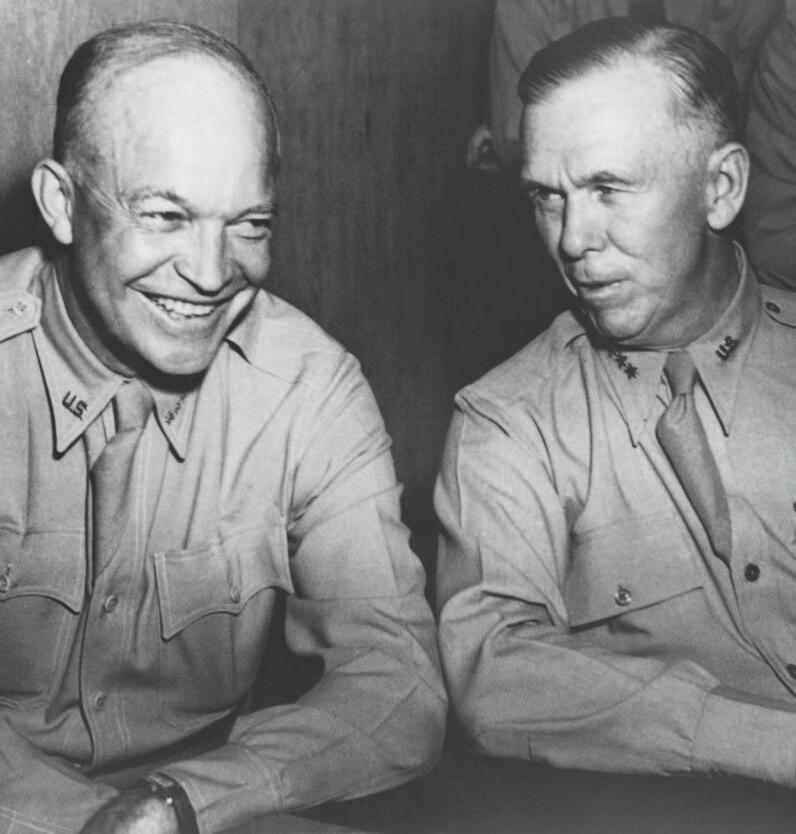
Washington where he could continue to influence the direction of the global war—we will never know the truth—his refusal to express his desire one way or the other was utterly selfless. Yet it was the code, the moral code, that he lived by.
Selflessness was a critical key to Marshall’s effectiveness as a leader because his subordinates knew that his orders and suggestions were motivated not by self-interest but by facts, objectivity, logic, and the best interests of the country. It was this quality that enabled Marshall to rally the brightest minds and most capable individuals—like Dwight Eisenhower, Lucian Truscott, Matthew Ridgway, George Kennan, and Dean Acheson— to loyally support and drive through his initiatives. They trusted Marshall with their lives and careers to do the right thing.
Secretary of War Henry Stimson, a lifelong Presbyterian, found an apt proverb to express both Marshall’s selflessness and his efforts to achieve self-mastery: “He that ruleth his spirit is better than he that taketh a city.”
A third aspect of Marshall’s character was candor—a quality related to trust and sincerity that reaches to the core of one’s integrity. When Marshall was a thirty-seven-year-old major in France during World War I, the first reported sign that the quality of candor would be etched into his character appeared. Perhaps it was summoned by an explosion of anger. In the presence of dozens of officers Marshall stepped forward and dared to confront General John J. “Black Jack” Pershing, the ramrodstraight supreme commander of all of the American forces in France. Pershing had just finished loudly criticizing, indeed humiliating, Marshall’s commanding officer, the head of the 1st Division, for failures in training his troops. Marshall, ever loyal to his boss, felt Pershing’s criticisms were unjust. He rattled off a stream of facts to show that Pershing’s own headquarters was responsible for the training deficiencies. Pershing tried to depart, saying he would “look into” Marshall’s allegations. Marshall grabbed Pershing’s arm, saying there was no need to investigate. “These are the facts,” he said.
Gen. Dwight D. Eisenhower and Chief of Staff Gen. George Marshall share a chuckle at the Algeria Conference in June 1943.
Marshall grabbed Pershing’s arm, saying there was no need to investigate. “These are the facts,” he said.
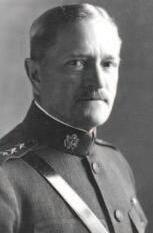
Those who witnessed the confrontation were horrified. They thought Marshall would be relieved. But it turned out that his candid outburst won Pershing’s respect. Marshall was promoted to colonel and assigned to Pershing’s own staff.
Over the years Marshall’s reputation for candor grew—not just for his honesty and openness but for being willing and unafraid to speak truth to power. In 1938 Marshall, as a one-star brigadier general, was the only one in a packed meeting in the White House to disagree with Roosevelt’s proposal to build 10,000 war planes as a strategy to deter Hitler. Though those in the room believed that Marshall doomed his relationship with the president, it turned out that Roosevelt admired and respected Marshall’s integrity.
Four months later, on a lazy Sunday, Roosevelt summoned Marshall to the Oval Study and told him he was inclined to appoint him chief of staff of the U.S. Army. “What do you think of that?” he asked Marshall. “Nothing, Mr. President,” replied Marshall, “except to remind you that I have the habit of saying exactly what I think…and that can often be unpleasing.” Roosevelt proceeded to make Marshall the chief of staff, jumping him over four other eligible generals who outranked him. Because of Marshall’s candor the president concluded that he could trust Marshall to tell him what he needed to know, not what he wanted to hear, and that he would remain loyal to his commander in chief.
Secretary of State
George Marshall with President Harry Truman at White House prior to Conference of Foreign Ministers in London, November 1947.
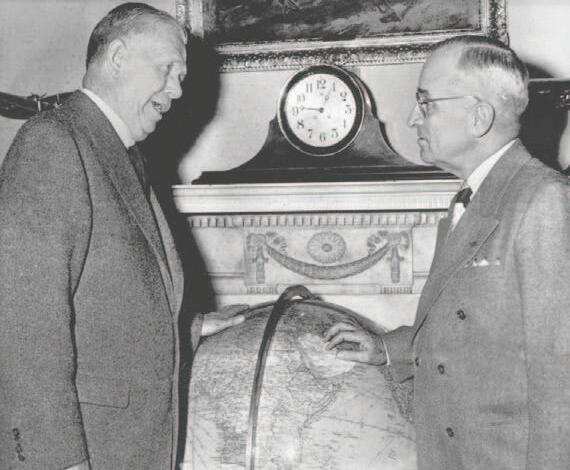
In 1948, during a showdown in the Oval Office, a redfaced Marshall told President Harry Truman that if he decided to immediately recognize the new state of Israel it would be “a transparent dodge to win a few votes” in the upcoming presidential election; a stain on the office of the presidency; and that if he, Marshall, voted in the forthcoming election he would “vote against the president.” Marshall’s rebuke startled everyone. When the room cleared, Truman used an old Missouri farmer’s saying to express what had just happened, “Well, that was rough as a cob.”
Though Truman, over Marshall’s objection, went ahead and recognized Israel, he still admired and respected Marshall for candidly expressing the reasons for his opposition. Two years later, Truman called upon Marshall again, this time to serve as secretary of defense shortly after the outbreak of the Korean War. Notwithstanding the stinging rebuke in the Oval Office, Truman continued to revere Marshall. Character mattered.
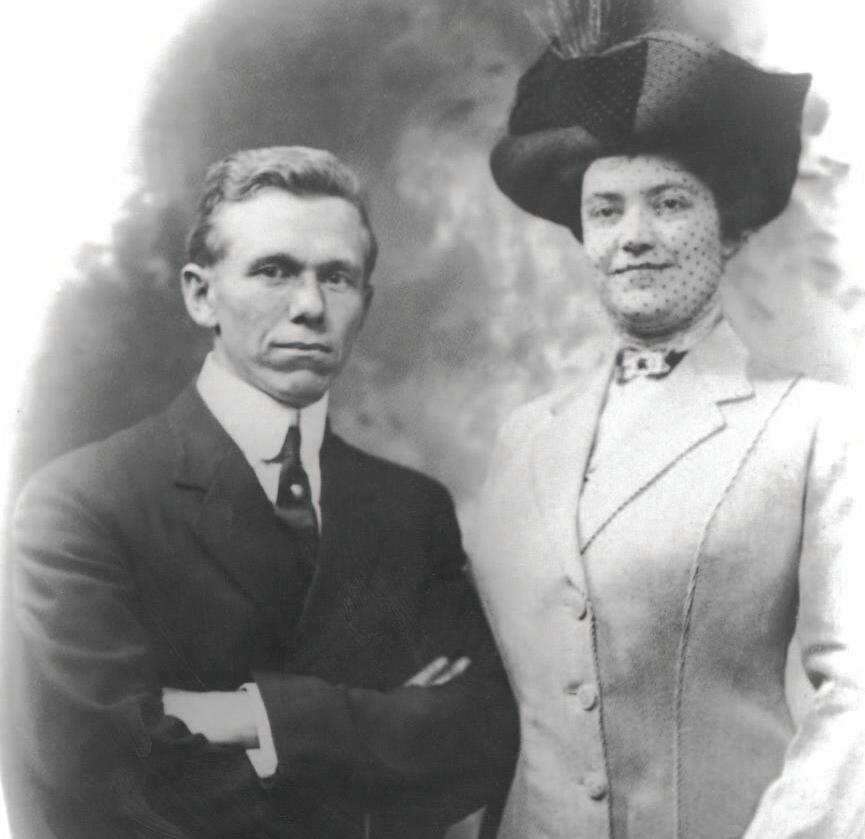
Marshall has been portrayed by most writers as coolly impersonal, austere, stoic, aloof, stolid— as if he lacked feelings, emotions. But as I devoured the letters donated to the Marshall Foundation and dug deeply into Marshall’s inner life, I found that his character was also indelibly shaped by a capacity for loving and accepting the love of his two wives, a precocious young girl, a headstrong stepson, and a handful of intimate friends.
In a letter to his close friend General Pershing, Marshall wrote that he felt “lost” and doubted “he could face the future.” Lily’s death changed Marshall. He softened, became more compassionate and conversational.
Marshall was passionately in love with his first wife, Lily Carter Coles, and she with him. Lily was a stunning woman—witty, full of fun, adventurous. On their wedding night George learned that Lily could not risk pregnancy due to a congenital heart condition. Though childless, by all accounts their marriage was blissful. In 1927 Lily died following a risky operation to remove the diseased thyroid gland that had been aggravating her heart condition. In a letter to his close friend General Pershing, Marshall wrote that he felt “lost” and doubted “he could face the future.” Lily’s death changed Marshall. He softened, became more compassionate and conversational.
Marshall’s second wife, Katherine Boyce Tupper, had been a trained Shakespearean actress who performed on the English stage. They met one another when they were in their late forties, the year after Katherine’s husband, a lawyer, had been murdered by a deranged client. Katherine was the mother of three, an older daughter and two teenaged boys. The marriage transformed George from a lonely widower into a loving and attentive husband and stepfather, enthusiastically responsible for “a complete family” as he exulted in a letter to Pershing. The relationship
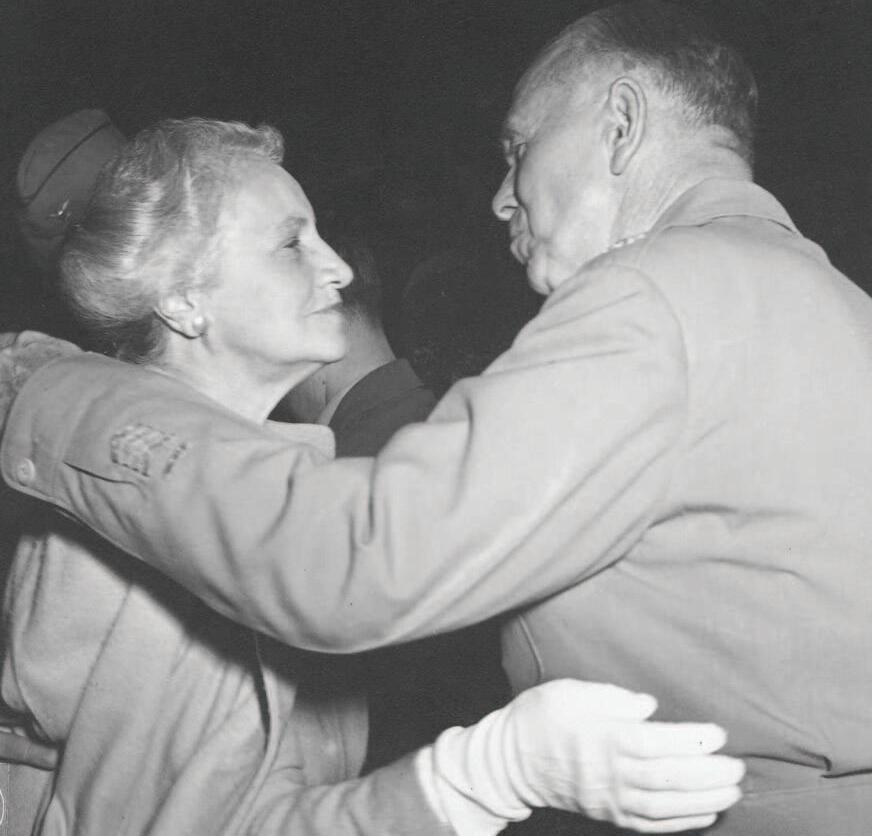
between George and Katherine was one of mature love—they provided one another with emotional support, companionship, mutual respect, and friendship. Marshall was particularly solicitous and caring with regard to Katherine’s health and regretted his long absences from her.
Marshall formed a lifelong bond with Allen, Katherine’s youngest, a sensitive and willful fifteenyear-old when they first met. He came to love and mentor Allen as if he were his own son, the son he never had. When Allen was killed during the war while leading his tank platoon on the road to Rome, Marshall experienced profound grief. Katherine was crushed.
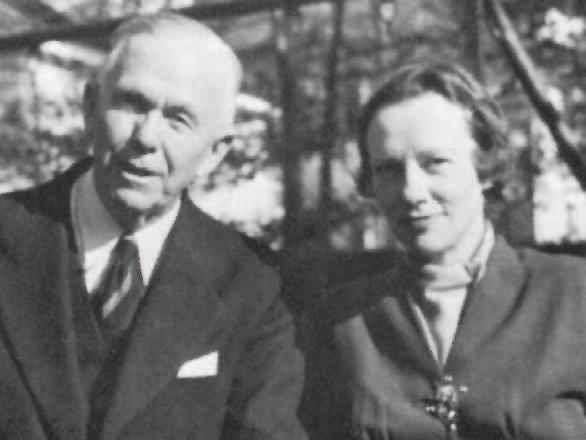
The precocious young girl that I mentioned, Rose Page, was befriended by Marshall when she was only eight. For the rest of Marshall’s life he treated Rose as if she were his daughter, advising her on school, career, marriage and serving as a responsible godfather of her children. It was a loving friendship. Rose was one of the last people to visit Marshall before he died.
David Brooks wrote that “love is a motivational state.” It “propels” one to make promises to those he or she loves. And that “character is forged in the keeping of those promises.” Marshall learned to make and keep his promises, not only to those he loved but to generals, presidents, and world leaders, among countless others.
Finally, as Marshall acquired power another aspect of his character—magnanimity—began to emerge. Magnanimity means high-minded, free from resentfulness, Latin for “great-souled.”
The day after Roosevelt decided that Eisenhower would command Overlord, Marshall handwrote a note at the bottom of the president’s order. “Dear Eisenhower. I thought you might like to have this as a memento.” Ike cherished the note. He understood at once the generosity—the great-souled nature—of Marshall’s gesture.
Because Marshall’s character enabled him to accomplish great things, it mattered. It will never be replicated but it needs to be remembered, if not emulated, by today’s leaders.
In fall of 1948 when Truman was running for president, Secretary of State Marshall raised himself to the heights as a magnanimous leader. At that time Marshall was locked, trapped in Paris in endless negotiations with Soviet diplomats over the Berlin crisis. Marshall learned that Truman, back in Washington, was about to undermine him by sending an inexperienced diplomat to Moscow to negotiate directly with Joseph Stalin. It was Truman’s version of an “October surprise,” hoping he could achieve a breakthrough with the Soviets that would help him win the election. Marshall could have resigned or threatened to resign. Some of his advisers recommended that he do just that. But he did not. Instead, he thought of the pressures on the president as he fought against long odds to win the presidency. He dashed off a radiogram to Truman. “I understand what’s worrying you Mr. President and I am coming home immediately.”
This was magnanimity on a grand scale. It was, in my judgment, the mark of a great man.
It has been said that if you want to test a man’s character give him power. By gaining dominion over most—but not all—of his shortcomings, by any measure George Marshall surely passed the test.
By the time Marshall ended his public career in 1951 the pillars of his character—self-mastery, selflessness, candor, the capacity to love and be loved, and magnanimity—were deeply etched. Because Marshall’s character enabled him to accomplish great things, it mattered. It will never be replicated but it needs to be remembered, if not emulated, by today’s leaders.
David L. Roll is the author of George Marshall: Defender of the Republic (Dutton Caliber) and The Hopkins Touch: Harry Hopkins and the Forging of the Alliance to Defeat Hitler (Oxford) and the co-author of Louis Johnson and the Arming of America (Indiana University Press), a biography of Harry Truman's defense secretary. He is
Senior Counsel at Steptoe & Johnson LLP, a Washington D.C.-based international law firm, Nonresident Fellow at the German Marshall Fund, and founder of the Lex Mundi Pro Bono Foundation, a public interest organization that provides pro bono legal services to social entre preneurs around the world.
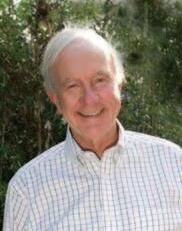
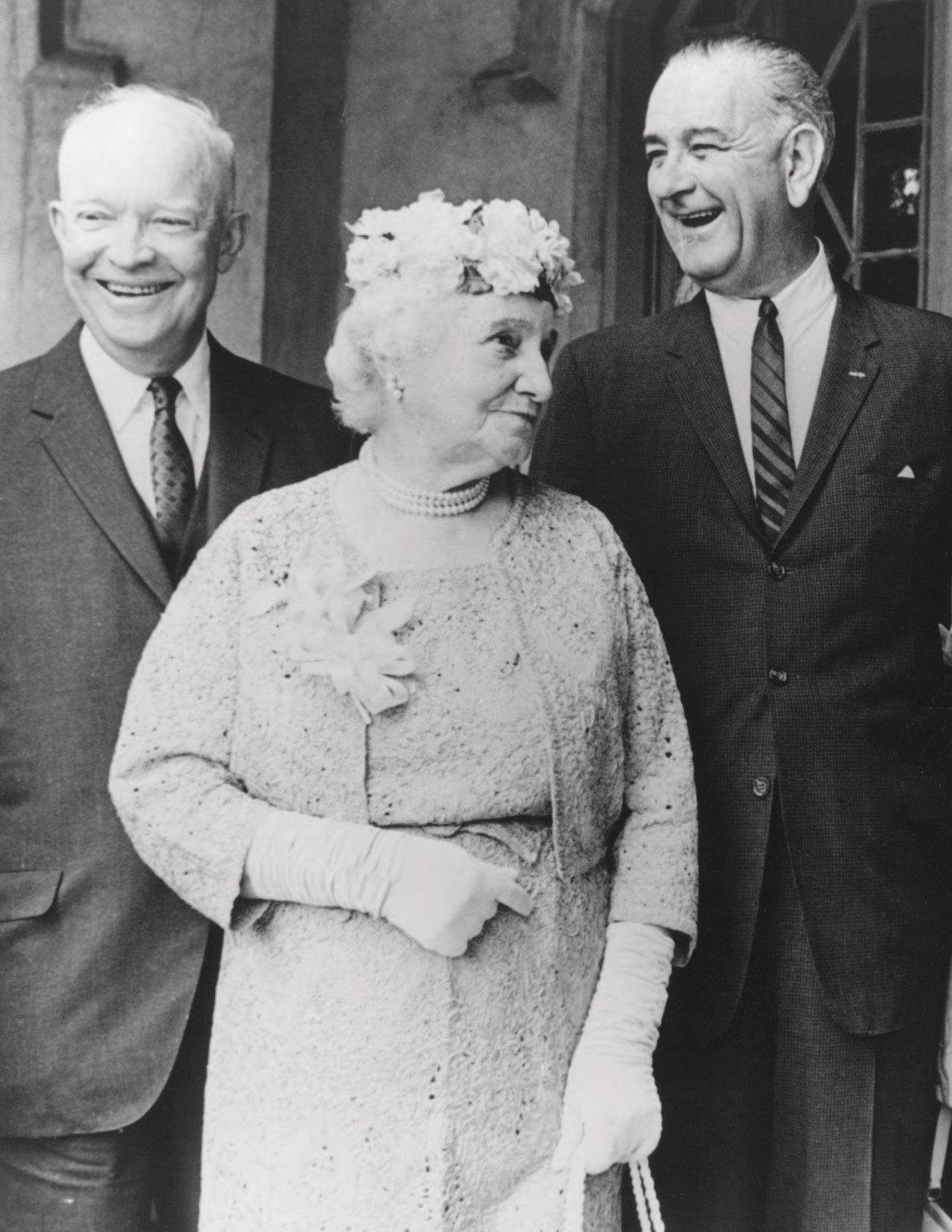
His vision was so clear, his grasp of complex issues so instinctive and precise, and his convictions so strong, that he was almost invariably the leader in discussions and in resultant decisions.
Through his collection of reminiscences, At Ease, and by way of careful revisionist scholarship in recent decades, we now know that Dwight D. Eisenhower had an excellent, not a fumbling, way with words. We can see this ability displayed in the following paragraphs, delivered at the dedication ceremony in 1964.
In his remarks, Eisenhower reflected on General George C. Marshall’s life, character, and career. Naturally, President Lyndon B. Johnson was the event’s speaker featured in the British Pathé two-minute newsreel coverage. But his comments pale next to Eisenhower’s.
The 34th president stressed the character of Marshall: his consideration for others, his logical approach to military problems, and his selflessness and objectivity. But notice how Ike developed his themes—with perfectly suited examples to pin down in memorable ways his general points.
Moral courage, calmness, wisdom: these are the virtues of leadership Eisenhower highlights. They are character traits every leader should possess, but they remain too abstract in our minds without the striking example of a good leader, a person who embodied these traits in times of severe testing. That’s why both Eisenhower’s remarks and the ongoing witness of the Marshall Museum and Library are so valuable.
Dwight D. Eisenhower’s Remarks on May 23, 1964
It is a high privilege for me, once again, to pay a simple tribute to General George C. Marshall. This time I do so in terms of my personal contacts with him.
A few of his characteristics are uppermost in my memory, and on these I shall dwell. They include his consideration for others; his clear, direct, and logical approach to any major military problem; his complete, single-minded dedication and loyalty to his country and government; and his selflessness and objectivity in making decisions and in courageously discharging his vitally important duties.
From World War I onward, I had often heard of George Marshall. By older officers he was always described as a brilliant soldier, by many as a genius. But until World War II was a week old,
David Hein is a senior fellow at the Marshall Foundation and the author, most recently, of “Better Than Eulogy: George C. Marshall’s Funeral Rites,” Touchstone (April 2019), and “General Matthew B. Ridgway: Conservative Internationalist,” Providence: A Journal of Christianity and American Foreign Policy (July 2020).
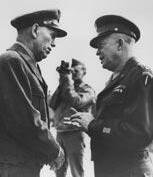
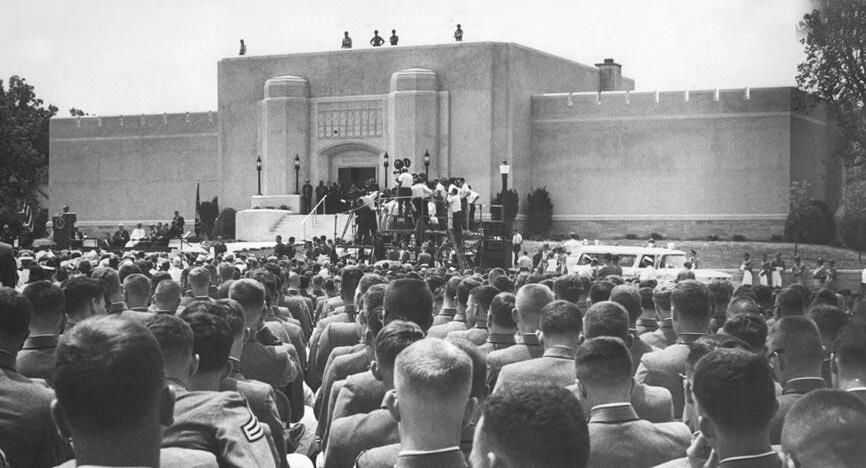
I had met him only twice, and then but momentarily. My direct association with him began December 14, 1941, on a Sunday morning in the old “munitions buildings” in Washington, D.C. He placed me in charge of military planning, later adding operations. On that Sunday morning a great deal of our conversation dealt with the situation in the Pacific. General Marshall brought me up to date with events and then said that he would look to me for assistance in planning help for that beleaguered area.
Just before dismissing me, he gave me some brief instructions that I have never forgotten. I can repeat his words almost verbatim, “Eisenhower,” he said, “the department is filled with able men who analyze their problems well but feel compelled always to bring them to me for final solution. I must have assistants who will solve their own problems and tell me later what they have done.”
He looked at me with an eye that seemed to me awfully cold, and so, as I left the room, I resolved then and there to do my work to the best of my ability and report to the General only situations of obvious necessity or when he personally sent for me.
“Eisenhower,” he said, “the department is filled with able men who analyze their problems well but feel compelled always to bring them to me for final solution. I must have assistants who will solve their own problems and tell me later what they have done.”
This habit I cultivated to the point that one day, finding myself in a crisis situation, I issued an order that occasioned for me ten days of acute embarrassment. Indeed, I suspected—with obvious reason—that I might be ignominiously dismissed from the presence of the Chief of Staff, if not from the Army. The facts were these:
We badly needed to send a division of troops to Australia, and it happened that in one of our ports and ready to depart was the British ship the Queen Mary. Having permission to use her, I directed the loading of 15,000 men on her and started her across the Atlantic and around the Cape of Good Hope without escort.
Because of her speed, I was not particularly worried until we intercepted a cable sent by an Italian official in Brazil to his government in Rome. It read as follows:
“The Queen Mary just refueled here, and with about 15,000 soldiers aboard left this port today steaming southeast across the Atlantic.”
At once I had visions of all the German submarines in the South Atlantic trying to concentrate around the Cape of Good Hope area, possibly intercepting the great ship and filling her full of torpedoes. For the next few days I slept little. But finally I had the welcome news that the Queen Mary had arrived safely in Australia.
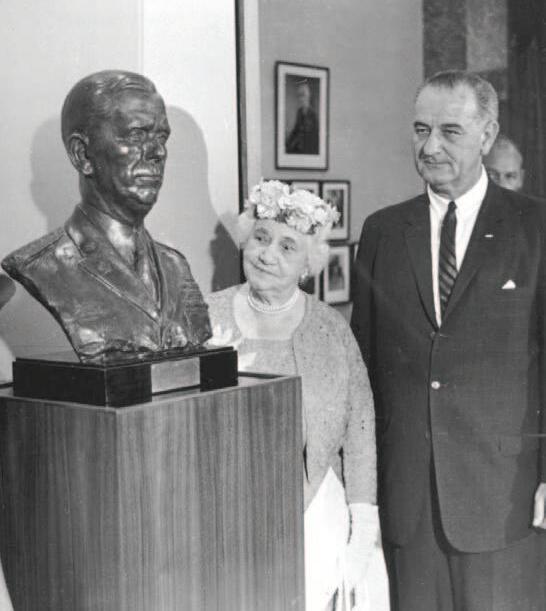
I felt so good that I took the time off to go voluntarily to the General’s office to tell what I had done and of the great suspense in which my principal assistants and I had been living. I said that I had not told him this before because I saw no use for his bearing the same burden of worry that I had been carrying. But now that all was well, I thought he might like to know what had happened.
He smiled and said, “Eisenhower, I received that intercept at the same time that you did. I was merely hoping that you might not see it, and so I was saying nothing to you until I knew the outcome.”
Rarely have I seen such generous consideration for a subordinate so beautifully exemplified.
One incident has bearing upon his conception of performance of duty without fear or favor. I was in his office once when he picked up the telephone to answer a call that an aide said came from a senator, the chairman of an important committee. As I watched the General’s face, it became flushed; he was obviously more than a little annoyed.
Within moments he angrily broke in to say, “Senator, if you are interested in that man’s advancement, or that of any other, the best thing you can do is to avoid mentioning his name to me. Good-bye!” Then he said to me, “I may make a thousand mistakes in this war, but none will be the result of political meddling! I take orders from the Secretary of War and the President; I would not stay here if I had to respond to outside pressures. Moreover,” he added, “I don’t like people who are seeking promotions.”
To possible senatorial displeasure he gave not a single thought.
In early conferences of the American Chiefs of Staff and, later, of the combined Chiefs of Staff— which meetings I attended as one of his assistants—he quickly established himself as the dominant figure. His vision was so clear, his grasp of complex issues so instinctive and precise, and his convictions so strong, that he was almost invariably the leader in discussions and in resultant decisions. In all Allied meetings in which I was present with him this continued throughout the war; his complete absorption in the task at hand was apparent to all.
“I may make a thousand mistakes in this war, but none will be the result of political meddling!”
In one meeting I saw convincing proof of his utter selflessness. American Chiefs of Staff were traveling to the Cairo and Tehran conferences in November of 1943. They stopped overnight at Allied Headquarters in the African Theater of War. Speculation was then rife as to the identity of the individual to be named to head the cross-channel operation scheduled for the next spring, named Overlord. Washington headlines, I was told, were fairly agog about the matter, some
Leaving the building and approaching the podium are President Johnson and Gen. Bradley. Behind Johnson is former President Eisenhower (not visible), Secretary Lovett, and Chaplain Miller. Behind Bradley is Gov. Harrison (not visible), Gen. Shell, and Dr. Pogue, May 23, 1964.
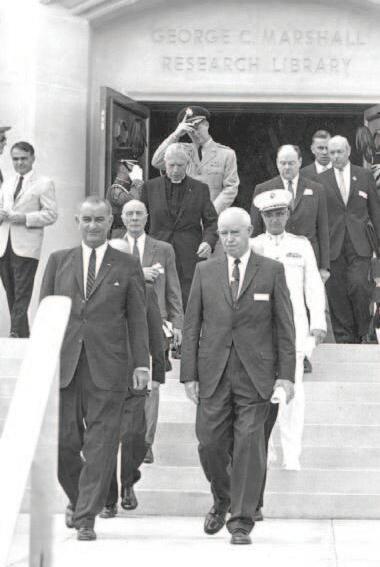
misguided persons even alleging that General Marshall and I were engaged in a bitter vendetta, each falsely accused of seeking the prize of command.
On the evening of the President’s arrival in Carthage, General Marshall and Admiral King, quartered with me in my cottage, had a long conversation into which Admiral King brought this subject. He had been given to understand in Washington, he said, that General Marshall was to go to London and I to the post of Chief of Staff. According to the Admiral, it was assumed the President, believing that Marshall would like to be in the field and that he had clearly earned the right to make his own choice of positions, had ordered the shift in assignments, agreeing to accept me as a substitute for General Marshall in his Washington post.
Admiral King, however, was convinced that the nation needed General Marshall in Washington said he was going to use what influence he had with the President to keep the Chief of Staff there. He made a prolonged presentation of his arguments and then, finally, invited my comments. I merely replied I would try to do my duty wherever my superiors decided I should serve.
General Marshall smiled and remarked, “I don’t see why any of us is worrying about this. The President will have to decide on his own, and all of us will obey.” He went on to say: “The President has asked for my preference, and I’ve refused to express any.”
I was struck by his complete objectivity; and not once in later years did he ever give me a hint as to his personal choice of the two positions.
Incidentally, there was a sequel to this story that should dispel any fanciful idea that there might have existed any rivalry between General Marshall and me for the Overlord command. At the end of the Cairo Conference the President decided to keep General Marshall in his vital post. The telegram informing Stalin that I would go to London was written out in longhand by General Marshall and signed by the President. The original text as then sent to me by General Marshall with this note:
Dear Eisenhower: I thought you might like to have this as a memento. It was written very hurriedly by me as the final meeting broke up yesterday, the President signing it immediately. G.C.M.
The telegram was not nearly as important to me as was the kindly thoughtfulness so clearly evidenced by a busy superior who wanted a subordinate to have a souvenir certain to be highly valued.
In December of 1945 I assumed General Marshall’s duties as Chief of Staff of the Army. One thing he said as I came to report to him has persisted in my memory. He expressed a great feeling of relief at laying down the duties of active service; the enthusiasm for the rest, recreation, and happiness of the life he saw stretching out before him and his family was, to say the least, unusual for him.
I was not only happy for him; I wished that I could have done the same. But the sequel to this incident was far from pleasant. Hardly had he been settled in the family home in Leesburg when he come [sic] into my office and announced: “The President is sending me to China; I’ll be needing some help from the Army; will you see that my requests are considered?”
“Of course,” I replied. “Anyone you want.” But I could not help asking whether he was not to have some rest and vacation. “It seems,” he said, “that the matter is one of some urgency.”
Not a word of complaint against fate or superiors—he just set about quietly to do his duty. But this time I knew where his heart lay; and I knew he felt keen disappointment, even though he would never voice it.
Finally, some time before he entered the hospital on his last illness, I stood with him as there was presented to the government, in his honor, a portrait of this unusual man. He was one of the three or four men whom, in positions of great responsibility, I have rated—in my own mind—as the most distinguished in character, ability, and leadership.
They will tell to future generations what those of us who were privileged to serve with him have long known: Here was truly a great man!
At that simple ceremony I found myself wishing that he could have understood how much he had meant to America, how much his fellow citizens appreciated the vision that impelled him in the late thirties and early forties to labor so hard to prepare the nation for the probability of its entry into the war and against pacifistic tendencies that almost defeated the draft law.

I thought of his moral courage, calmness, and wisdom after the war began in directing the mobilization and worldwide deployment of great armies and air forces; of the readiness and selflessness he displayed in forsaking all his own cherished plans as he undertook new and onerous duties in the afternoon of his life. These and a myriad of other things, I prayed that he might fully understand. But his modesty would have rejected any effort of others to tell him.
Now the documents telling of his life and time are being collected, edited, and made ready for historical use. They will tell to future generations what those of us who were privileged to serve with him have long known: Here was truly a great man!
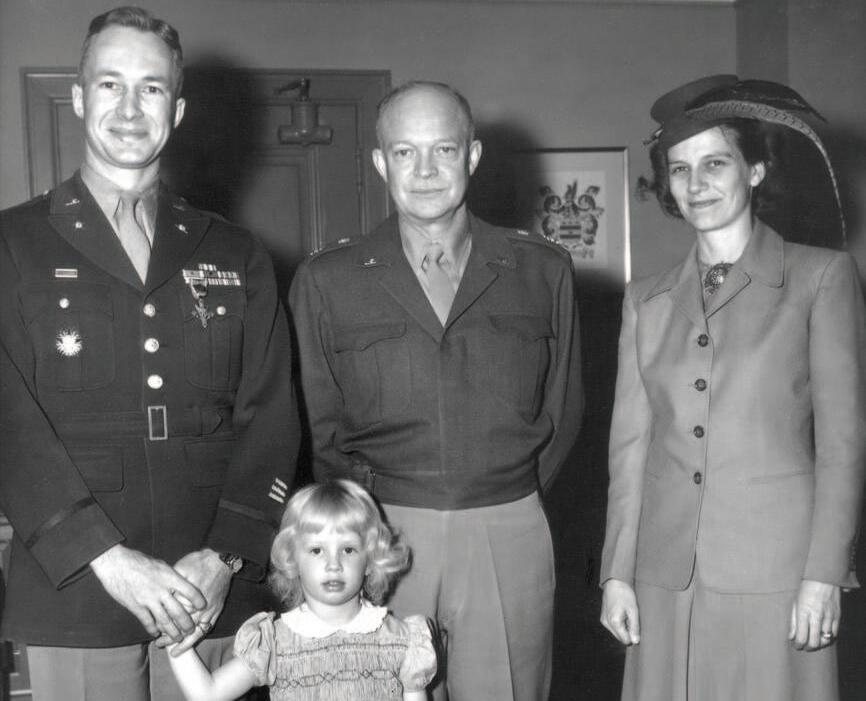
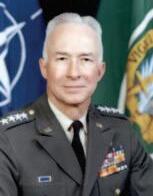
The late Andrew Goodpaster began a career in public service that lasted nearly seven decades beginning with his graduation from West Point in 1939. During World War II he commanded the 48th Engineer Combat Battalion in North Africa and Italy. His combat experience was cut short in January 1944 when he was severely wounded and sent back to the United States to recover. After his wounds had healed, he was assigned to the War Planning Office under General Marshall, where he served the duration of the war. After
receiving a Ph.D. from Princeton, General Goodpaster served as Staff Secretary to President Eisenhower, Commandant of the National War College, Deputy Commander of U.S. Forces, Vietnam and Commander-inChief, U.S. European Command and Supreme Allied Commander, Europe. Also he served as Superintendent of the U.S. Military Academy and on numerous boards and commissions including The Atlantic Council, The Eisenhower Institute, and the Marshall Foundation, of which he was the chairman for many years.
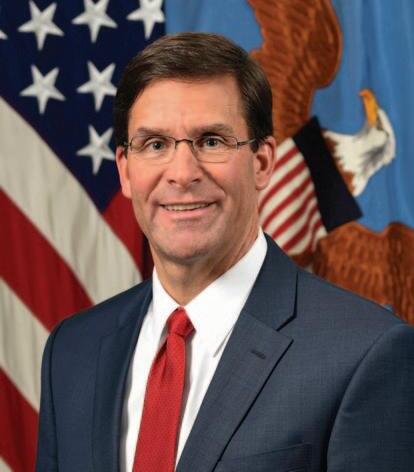
In 2008, the Goodpaster Award was established to honor the life and service of General Andrew J. Goodpaster, a longtime trustee and chairman of the Foundation, a champion of the Marshall legacy, an American hero and an extraordinary public servant. The Goodpaster Award is presented to American heroes in a variety of fields who, like General Goodpaster, have exhibited great courage, selfless service, patriotism and leadership in their lives and careers.
The Honorable Mark T. Esper, Secretary of Defense, will receive the Andrew J. Goodpaster Award from the Marshall Foundation at a dinner at the Army Navy Country Club in Arlington, Virginia, on Tuesday, December 8, 2020. Secretary Esper will be recognized for his distinguished career and his many contributions to our nation. He has overseen a rebuilding of our national defense capabilities and been a strong advocate for both military preparedness and our brave men and women in uniform.
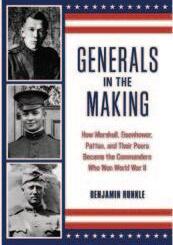

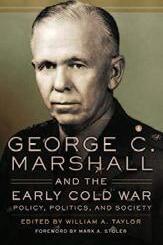
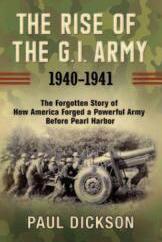


A native of Uniontown, Pennsylvania, Dr. Esper is a 1986 graduate of the United States Military Academy and received his commission in the Infantry. Upon completion of Ranger and Pathfinder training, he served in the 101st Airborne Division and participated in the 1990–91 Gulf War with the “Screaming Eagles.” He later commanded a Rifle Company in the 3-325 Airborne Battalion Combat Team in Vicenza, Italy. He retired from the U.S. Army in 2007 after spending 10 years on active duty and 11 years in the National Guard and Army Reserve.
After leaving active duty, he served as Chief of Staff at The Heritage Foundation think tank, followed by service as legislative director and senior policy advisor to former Senator Chuck Hagel. He was a senior professional staff member on the Senate Foreign Relations and Senate Government Affairs committees, policy director for the House Armed Services Committee, and national security advisor for former Senate Majority Leader Bill Frist. During the President George W. Bush administration, he served as the Deputy Assistant Secretary of Defense for Negotiations Policy at the Pentagon.
The Honorable Mark T. Esper was sworn in as the 27th Secretary of Defense on July 23, 2019 after serving as Acting Secretary of Defense and Secretary of the Army.

NEW BOOKS ABOUT OR INCLUDING MARSHALL Generals in the Making: How Marshall, Eisenhower, Patton, and Their Peers Became the Commanders Who Won World War II
By Benjamin Runkle (Stackpole Books,2019)
George C. Marshall and the Early Cold War: Policy, Politics, and Society
By
WilliamTaylor (Editor), Mark A. Stoler (Foreword) (University of Oklahoma Press, 2020)
The Rise of the GI Army
By Paul Dickson (Atlantic Monthly Press, 2020)
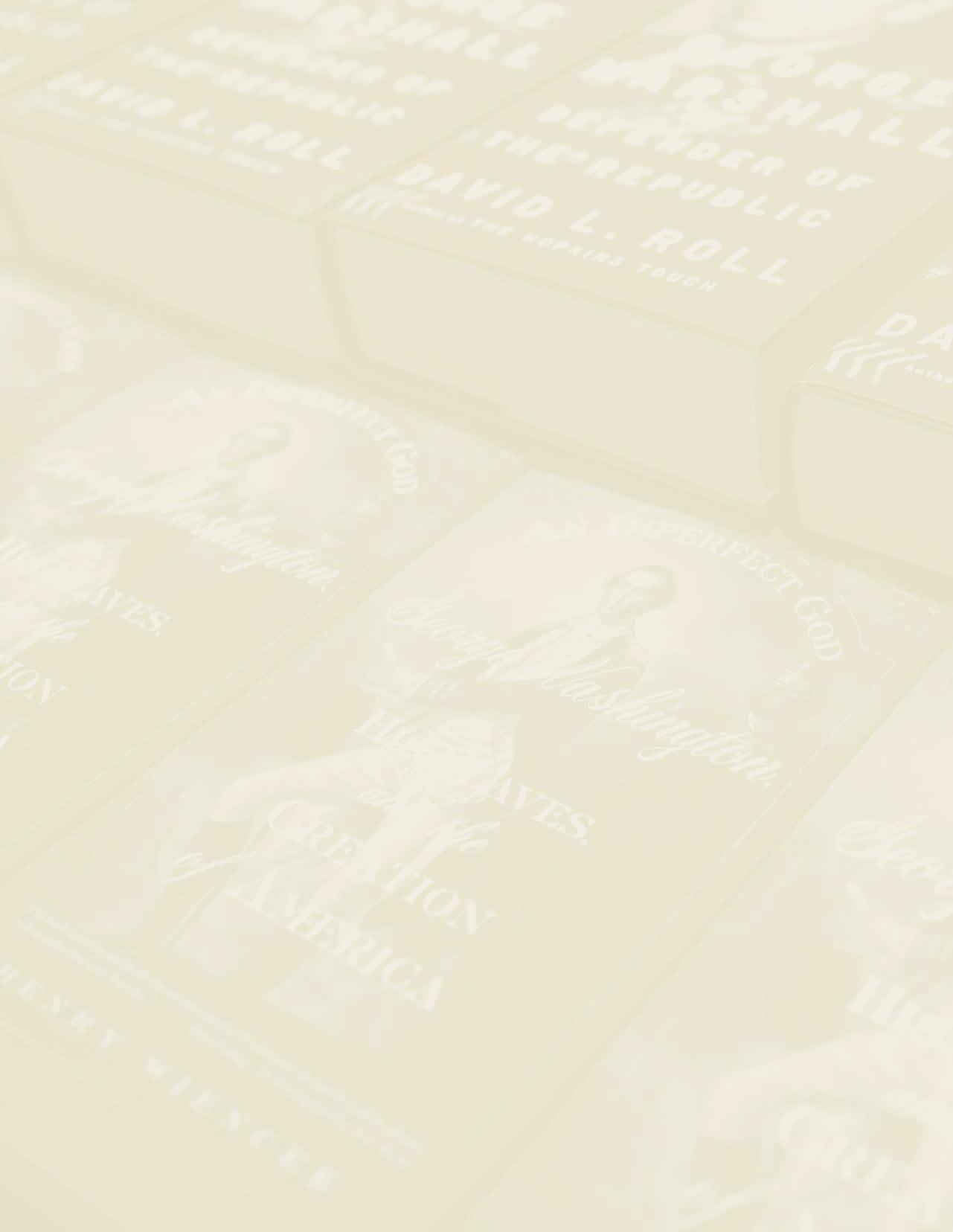
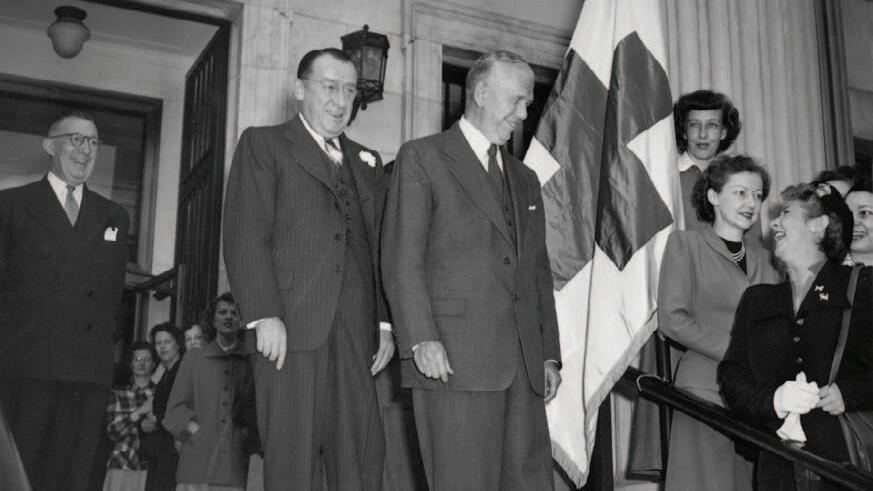

Although the coronavirus pandemic has changed much about life today, the George C. Marshall Foundation continues to provide a slate of stimulating programming and new initiatives. As a member benefit, we are offering virtual Legacy Series lectures. We have also been reaching back every couple of weeks to some of our most popular past lectures and encouraging members to revisit these talks. Finally, Marshall Moments is a new bi-weekly email digest of Marshall-related stories from the Foundation and across the internet that remind us of the timeless character and leadership qualities of George C. Marshall.
On January 30, author Tom Bowers gave a fascinating discussion of his publication, A Tonic to My Spirit: George Catlett Marshall and the American Red Cross in the Pogue Auditorium of the Marshall Foundation located on the
VMI Post in Lexington. His account of George Marshall’s presidency of the American Red Cross was published in 2019. Mr. Bowers is the docent director at George Marshall’s Dodona Manor in Leesburg, Virginia.
Marshall & Washington: Indispensable Men
Authors David Roll and Henry Wiencek continued the Marshall Legacy Series on February 20 with an interesting discussion titled Marshall and Washington: Indispensable Men in the Lee Chapel and Museum on the campus of Washington & Lee University. Marshall Foundation President, Dr. Paul Levengood, moderated this conversation. This event was a partnership between the Museums at Washington & Lee and the Marshall Foundation and examined the interesting parallels in the lives and careers of George Marshall and George Washington.
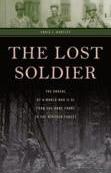
The Lost Soldier: The Ordeal of a World War II GI From the Home Front to the Hürtgen Forest
Author Chris Hartley gave the first virtual Legacy Series lecture on April 24 with a sobering talk on his new book, T he Lost Soldier: The Ordeal of a World War II GI From the Home Front to the Hürtgen Forest. In his talk, Hartley recounts the war through the experiences of a North Carolina couple, Pete Lynn and his wife, Ruth, who found the war increasingly insinuating itself into the fabric of their lives. Pete was drafted in early 1944 and killed in combat less than eight months later, on November 2, 1944, in Germany’s Hürtgen Forest.
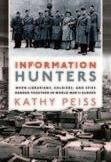
Information Hunters: When Librarians, Soldiers, and Spies Banded Together in World War II Europe
On June 26, cultural historian Kathy Peiss gave a virtual lecture on her new book, Information Hunters: When Librarians, Soldiers, and Spies Banded Together in World War II Europe. In her talk, she describes how book and document collecting became part of the new apparatus of intelligence and national security, military planning, and postwar reconstruction. Peiss focuses on ordinary Americans who found themselves in extraordinary situations, making decisions to acquire sources that would be useful in war zones and on the home front. Illuminating an unusual period when libraries and the military, intelligence and cultural heritage were closely intertwined, Peiss offers a historical perspective on contemporary debates over the uses of books and information in times of war and peace.
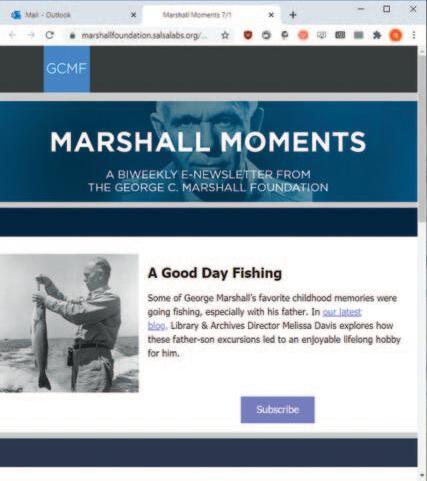
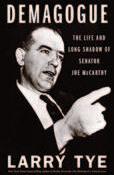
Demagogue: The Life and Long Shadow of Senator Joseph McCarthy
New York Times bestselling author Larry Tye gave the third virtual Marshall Legacy Series lecture on July 6 with a fascinating summary of his new book, Demagogue: The Life and Long Shadow of Senator Joe McCarthy. Tye describes the period from 1950 to 1954, when McCarthy destroyed many careers and even entire lives, whipping the nation into a frenzy of paranoia, accusation, loyalty oaths, and terror. By recklessly charging treason against everyone from George Marshall to much of the State Department, he became the most influential and controversial man in America.
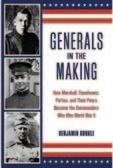
On July 17, Benjamin Runkle, author of Generals in the Making, provided our fourth virtual Legacy Series lecture with a fascinating discussion of the resilient career of General George C. Marshall. Runkle describes Marshall as the most indispensable man to the American war effort in World War II, but argues he would not have been in position to alter the course of world history if not for fortunate twists of fate and his ability to overcome both personal tragedies and professional setbacks. Benjamin Runkle is a former paratrooper and presidential speechwriter with a Harvard PhD and a Bronze Star from Operation Iraqi Freedom.
Visit our website marshallfoundation.org to subscribe to our bi-weekly “Marshall Moments” eNewsletter.
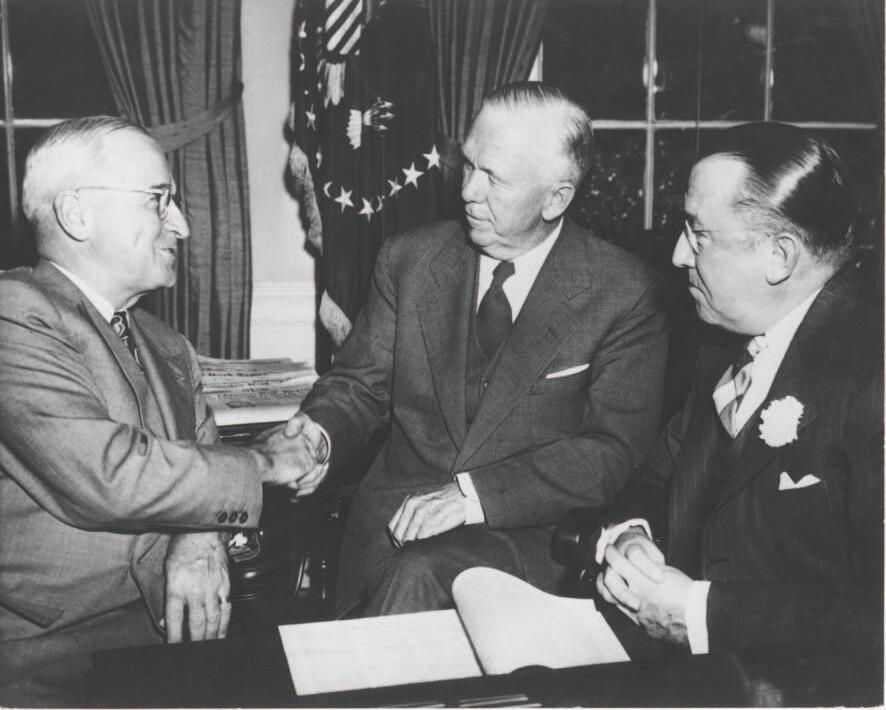
“
To my mind, General George Marshall typifies George Washington in many ways as a man of great personal force, intellect, vision and inborn leadership. He, in his own way, rates the distinction of being first in war, first in peace, and first in his role of helping to rebuild and reshape the postwar free world.”
— President Harry Truman
President Truman was scheduled to speak at the dedication of the Marshall Library in May 1964. However, following the advice of his doctor, he did not attend. Instead, General George Shell read Truman’s message, which included these words.

Through your membership, you help us perpetuate the legacy of the man President Harry Truman called “the great one of the age.” As the keeper of the flame, the Marshall Foundation preserves and communicates the remarkable story of the life and times of George C. Marshall and his contemporaries. It has become a unique, national treasure worth protecting at all costs. That’s why your membership is so important.
$75
• Unlimited free Museum admission during the membership year and 10% discount in the Museum Shop
• Receive biannual newsletter, The Strategist and biannual magazine, MARSHALL
• Free admission to Legacy Series events
$250
• All $150-level benefits, plus
• New members receive a Five-Star lapel pin
$1,000
• All $500-level benefits, plus
• Private tour of the Archives
$5,000
• All $2,500-level benefits, plus
• Civilian or military bust of Marshall

$150
• All $75-level benefits, plus
• Reciprocal admission to NARM-member museums*
*National Association of Reciprocal Museums
$500
• All $250-level benefits, plus
• New members receive The Words of George C. Marshall
$2,500
• All $1,000-level benefits, plus
• Two discounted tickets to Foundation Award event
• After-lecture dinner with Legacy Series speaker
$10,000
• All $5,000-level benefits, plus
• Four discounted tickets to a Marshall Award event
• Discounted table at a Foundation Award event
$150 (CORPORATE)
• All $75-level benefits, plus
• Reciprocal admission to NARM-member museums*
• Recognition as a Corporate Partner at the Foundation

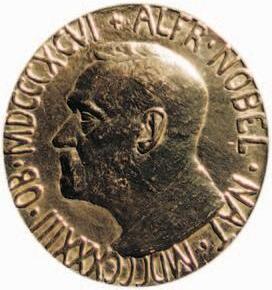 Marshall received this Nobel Peace Prize in 1953. It’s on display in our museum.
Marshall received this Nobel Peace Prize in 1953. It’s on display in our museum.

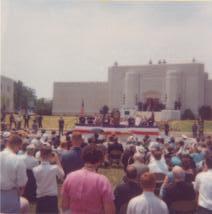

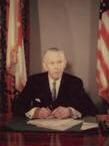

This magazine, in tandem with our Marshall Legacy Series and other initiatives, brings Marshall to life substantially and in a fashion that does justice to the complexities of his life, character, and career.
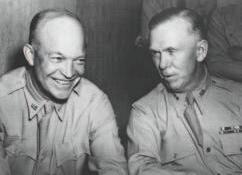
Marshall and the American Red Cross
George C. Marshall: Character Matters
Eisenhower Remembers His Mentor
Marshall Shorts: Goodpaster Award
Marshall Legacy Series